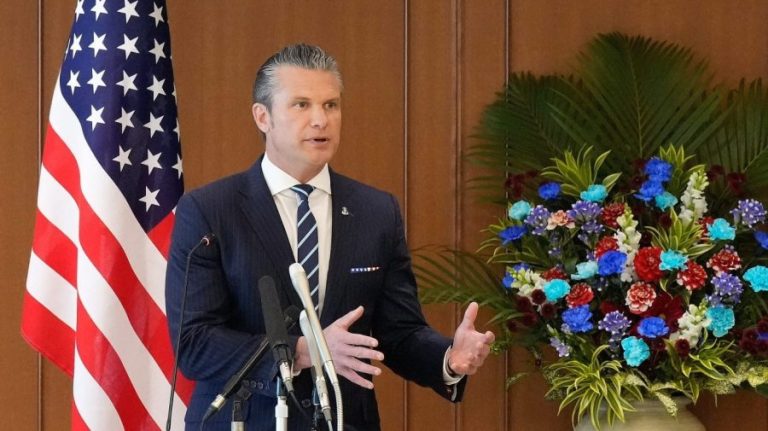Defense Secretary Pete Hegseth on Friday told China’s defense minister that the U.S. will “stoutly defend its interests” in the Indo-Pacific region.
Hegseth said emphasized “the importance of maintaining a balance of power” in the region in his discussions with Chinese admiral Dong Jun, which took place on the sidelines of the Association of Southeast Asian Nations (ASEAN) national security summit in Malaysia.
The Defense chief, who called the meeting “good and constructive,” added that he brought up “serious concerns” about China’s activities in the South China Sea and around Taiwan in a post on social platform X.
Millions await ruling in emergency SNAP funding lawsuit
The U.S. “does not seek conflict, it will continue to stoutly defend its interests and ensure it has the capabilities in the region to do so,” Hegseth wrote.
Following the meeting, the Chinese Ministry of National Defense wrote in a release that they believed a stable and positive relationship between the U.S. and Chinese militaries is possible. The release also stated that Jun warned the U.S. against supporting Taiwan independence.
The Trump administration removed language from the State Department website earlier this year stating that the U.S did not “support Taiwan independence.” The U.S. does not formally recognize Taiwan — part of the “One China” policy — as an independent state, it is seen as a major ally.
Hegseth has also previously expressed opposition to a possible takeover of Taiwan by China.
“There’s no reason to sugarcoat it, the threat China poses is imminent,” he said in a May during a defense conference held in Singapore.
Warning signs may point to a looming recession as shutdown continues
The secretary added at the time that any move by Beijing against Taipei “would result in devastating consequences for the Indo-Pacific and the world.”
His hardline stance against China led to the country criticizing him for espousing a “Cold War mentality.” But, Hegseth has maintained that the U.S. will continue to support allies in the region and not let them be “subordinated or intimidated.”
Friday’s meeting between Hegseth and Jun follows a Sept. 9 video teleconference call between the two officials.It also came a day after President Trump met Chinese counterpart Xi Jinping.
During the meeting between the world leaders, the U.S. agreed to scale back some tariffs, among other deals.

